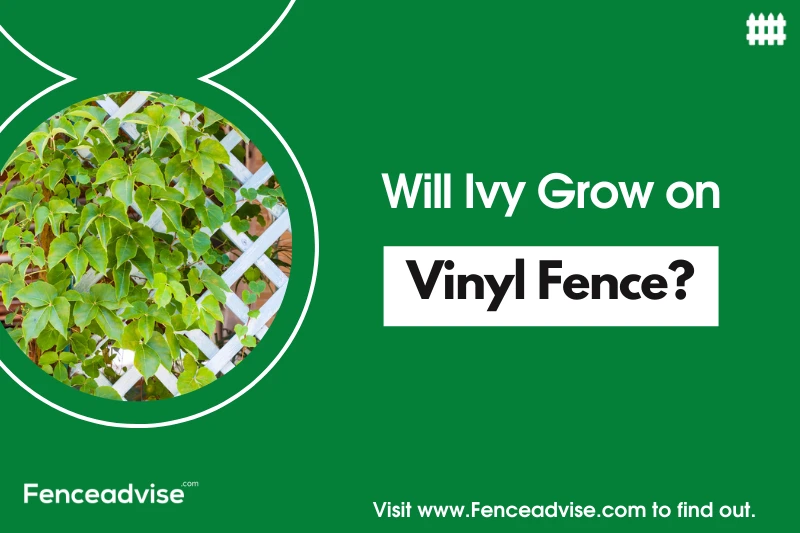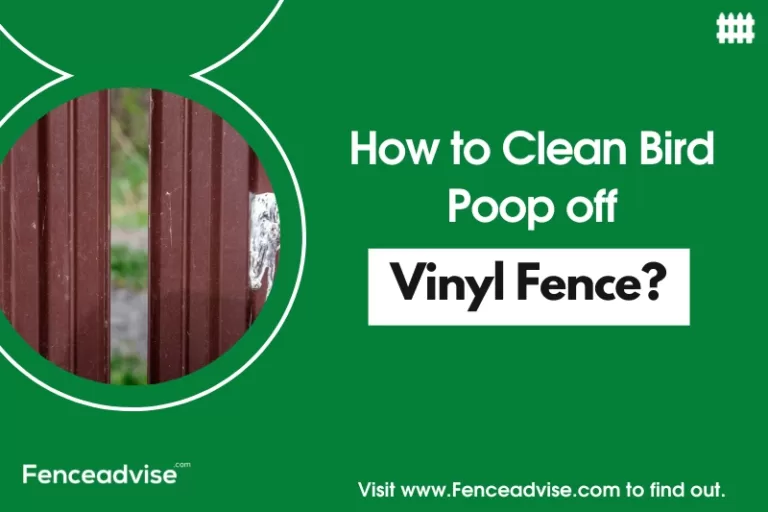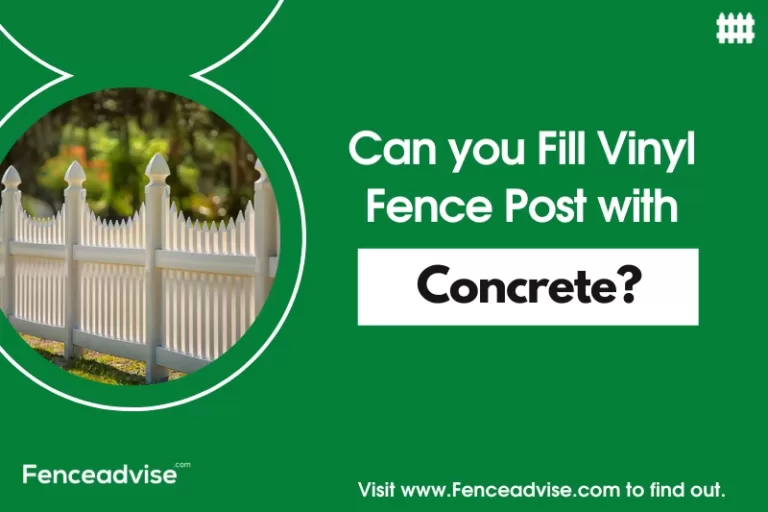We include products we think are useful for our readers. If you buy through links on this page, we may earn a small commission. Read our affiliate disclaimer here.
The answer to the question of whether ivy will grow on a vinyl fence is “yes”, but you need to choose the type of ivy carefully. Most ivy varieties are simply too large and heavy for a fence, and they’ll pull it down as they try to climb over. However, there are some smaller varieties that will work well as ground cover for your vinyl fence.
fence advise editor’s choice
Artificial Faux Ivy Hedge Leaf and Vine Privacy Fence Wall Screen
Will Ivy Damage my Fence?
Many people think that ivy will grow on vinyl fences and railings. In fact, ivy can actually damage your fence with its sap, which is highly acidic.
This acid sap will eat away at the paint of your vinyl fence over time. Ivy will also damage your vinyl fence by growing over it and breaking the seal between the fence and the ground. This will allow water to seep into your fence, which can cause rotting and cracking.
Will Ivy Damage my Home?
Ivy will not eat away at your home’s foundation, but it can grow up and over the exterior of your home. Ivy can also damage gutters, eaves, soffits, siding, and shingles.
It can even grow through cracks in concrete or stone. So, if you want to keep your home looking nice, it’s best to remove ivy before it has a chance to grow or you need to take action against its growth.
If you have ever wondered how long it takes for ivy to damage vinyl siding, you will be happy to know that it can take years.
Get Free Quote
Quickly Find a Fence Installation, Repair Contractor Near you
Looking for a reliable fence installation or repair contractor in your area? Look no further! Fill out the form below to receive a free, no-obligation quote from one of our experienced professionals.
Our contractors are experienced and dedicated to providing the highest quality fence services. With a quick response time and competitive pricing, you can trust us to handle all of your fencing needs. Get started today and see the difference a high-quality fence can make for your property!
This is because the sap from ivy will not eat away at vinyl siding right away. It takes time for the acid to work its way into the vinyl siding and cause damage. The process of how ivy eats away at vinyl siding is called oxidation.
Oxidation occurs when the sap from ivy mixes with oxygen in the air and causes a chemical reaction. The result is that the vinyl siding will start to turn a dark color and eventually become brittle. The vinyl siding will also start to crack and crumble.
The good news is that oxidation can be reversed if the ivy is removed before it causes too much damage. However, if the ivy has been on the siding for a long time, it may be necessary to replace the vinyl siding.
Read More
Will Boston Ivy Grow on Vinyl Fence?
The short answer is yes it will. A little more explanation. Boston Ivy (Parthenocissus tricuspidata) is an invasive species that grows and spreads quickly and can choke out native plants.
This is why when you find a fence covered in it, there’s usually no way to remove it because it has taken over everything else. If you do find a fence covered in it, the best thing to do is cut off the ivy at ground level and dispose of it. It will grow back from the roots so you have to keep cutting it off every year.
Get Matched with Local Fence Professionals
Answer a few questions and we’ll put you in touch with pros near you.
The Boston Ivy plant will eventually reach the top of your fence. It is important to remember that this plant can grow over 25 feet in height, so it is important to consider this when planting.
Boston Ivy plants will grow on any fence, but the process is much easier if you have a vinyl fence. This is because the vinyl will not rust or rot as wood fences do and it is easier to clean.
You need to provide support for the Ivy plants. The best way to do this is to place a wire on top of the fence, and then attach it to the fence with zip ties. Also, a small trellis can be attached to the fence, and then you can attach the Boston Ivy plants to them
Should you Let Ivy Grow on my Fence?
Ivy on fences is a great idea. Ivy is a very strong plant and will grow over time to cover the fence. The ivy will then help protect the fence from the elements, as well as make it look beautiful.
fence advise editor’s choice
Artificial Faux Ivy Hedge Leaf and Vine Privacy Fence Wall Screen
It also provides a nice place for birds to build nests. But if you have a fence that is near your home, you may want to be careful about what kind of ivy you plant. Some types of ivy are very invasive and will spread all over the place.
Alternative Way
Artificial ivy is a great alternative to using real ivy on a fence. It provides the same visual appeal and privacy benefits as real ivy, but without maintenance and upkeep. Artificial ivy is made from synthetic materials that are designed to withstand the elements, and it can be used to cover fences, walls, or any other outdoor surfaces you want to green up. It’s also great for those who are looking for a more sustainable solution, as artificial ivy doesn’t require any water or sunlight to thrive, and it will never wilt or die.
Our Recommended Product
Our Pick
Best Choice Artificial Faux Ivy Hedge Leaf and Vine Privacy Fence Wall Screen
This lightweight and functional accent piece is designed to provide a realistic and natural look that adds an earthy feel to any indoor or outdoor space.With densely packed leaves, the artificial ivy fence provides a sense of privacy while also allowing airflow through its open net back. T
Conclusion
Ivy is an attractive plant. It climbs up walls and fences, enveloping them in green and adding privacy to your property. You may have noticed that it can be hard to control.
That’s because ivy vines grow quickly and spread out over time. While there are ways to remove it from Vinyl fences, the most effective method is preventing it from growing on your vinyl fence or wall in the first place. Otherwise, you can choose Ivy that is not too invasive. For example, Virginia Creeper.
At FenceAdvise, we pride ourselves on being the most reliable and trustworthy source of fencing information. Our articles are based on only the highest quality sources, including peer-reviewed studies, to ensure that our readers always have access to accurate information. Read more about our Editorial Guidelines, About Us.





